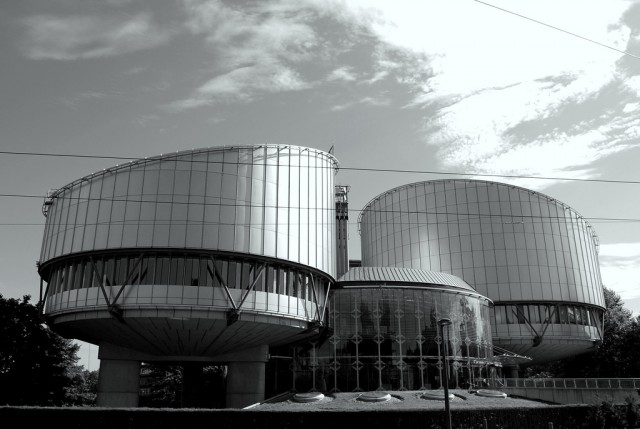Activists: UK law doesn't "permit scooping up details of every communication."
Three United Kingdom-based nonprofit organizations and a German Internet activist have filed a lawsuit against the British government at the European Court of Human Rights (ECHR), arguing that the UK's electronic spying network is illegal.
Documents provided by former National Security Agency contractor Edward Snowden have shown that the UK’s Government Communications Headquarters (GCHQ), the sister organization to the NSA, has been one of the most prominent players in digital surveillance, particularly of European traffic.
The lawsuit was filed Thursday at the ECHR in Strasbourg, France by Big Brother Watch, Open Rights Group, English PEN, and Constanze Kurz, who has been a longtime spokesperson for the Chaos Computer Club, a well-known German hacker group.

The European Court of Human Rights hears 50,000 cases each year.
“Beyond effective legal scrutiny”
In the 67-page filing, the appellants argue that the communications interception is in direct violation of Article 8 of the European Convention of Human Rights, Europe’s rough analog to the Fourth Amendment to the US Constitution, which protects against unreasonable searches and seizures.
Unlike the Fourth Amendment, however, Article 8 specifically carves out a national security exception.
It states:
In their filing, the appellants argue that because the newly revealed data collection is “indiscriminate,” it cannot possibly be “subject to any sufficiently precise or ascertainable legal framework and is beyond effective legal scrutiny.”
More precisely:
Holding the powerful accountable
Nick Pickles, director of Big Brother Watch, said in a statement that British laws have been interpreted far more broadly than how they originally were intended.
“The laws governing how Internet data is accessed were written when barely anyone had broadband access and were intended to cover old-fashioned copper telephone lines,” he said. “Parliament did not envisage or intend those laws to permit scooping up details of every communication we send, including content, so it’s absolutely right that GCHQ is held accountable in the courts for its actions.”
The court, which is composed of 47 judges from each of the member states of the Council of Europe, may take months (or years) to render a decision. However, this case likely will be heard by a smaller committee composed of three or seven judges. The ECHR’s own flow chart shows a long process (PDF) that likely awaits this application, along with the 50,000 other new applications that it receives each year.
“The timetable is for the court, but I would hope for the case to be formally communicated to the UK within a couple of months,” Daniel Carey, the chief solicitor in the case, told Ars. “Thereafter, they are likely to have two to three months for their response before the court considers next steps. The quickest case I have done in Strasbourg was determined in 14 months, so I hope that we may get a judgment next year.”
Courtesy: arstechnica



0 comments:
Post a Comment